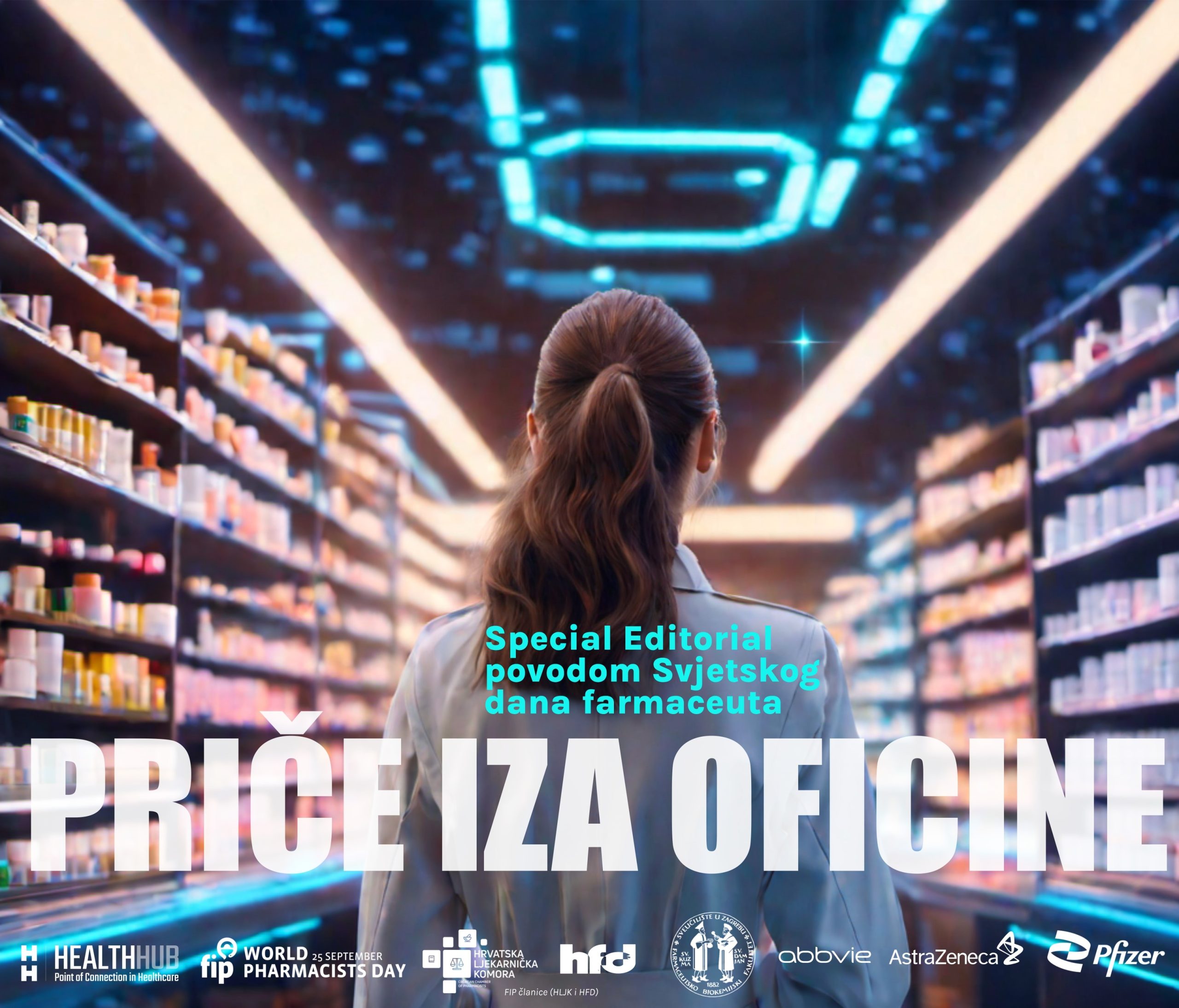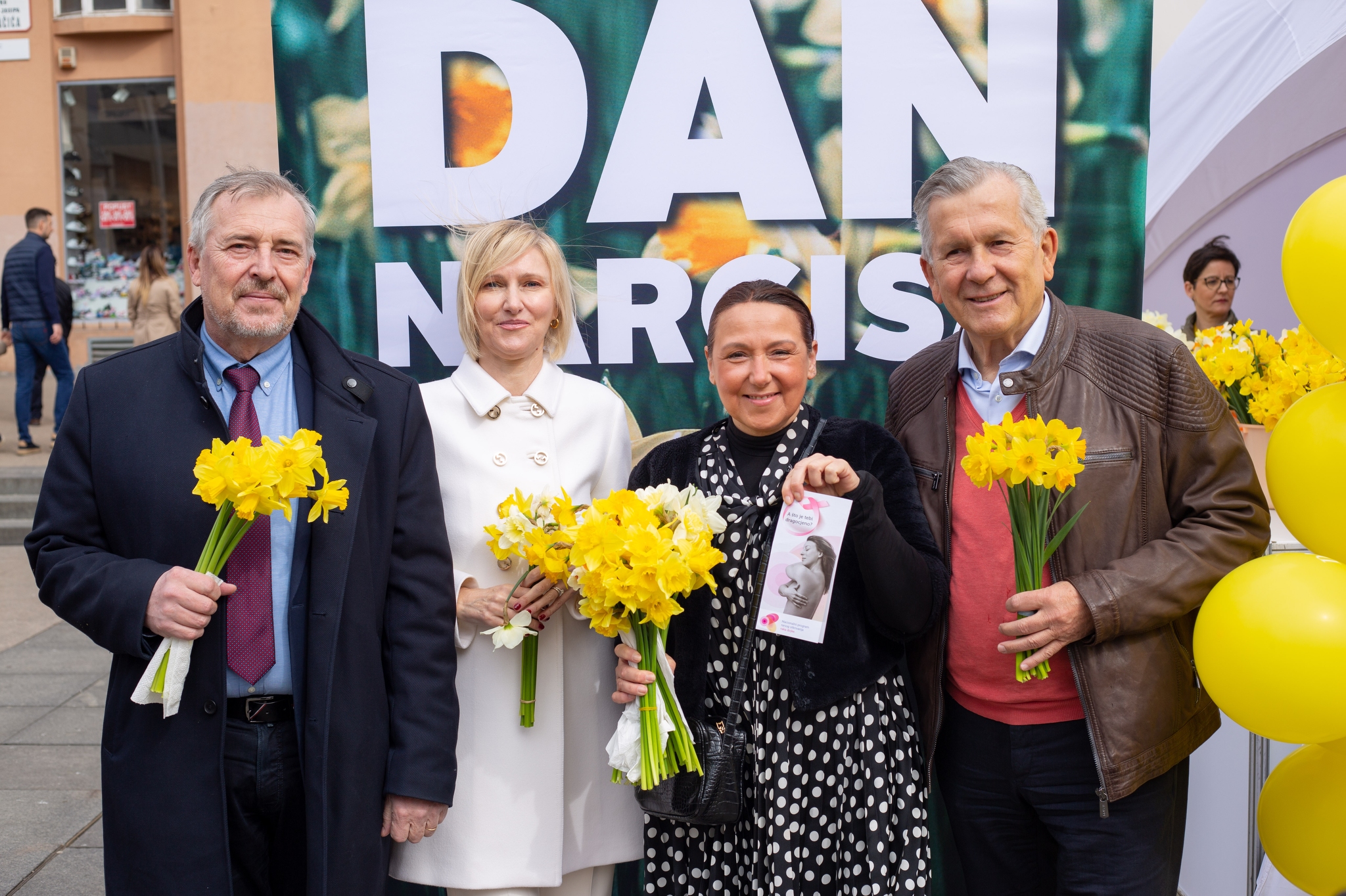Special Editorial “Stories behind officinae” – Mohamed Hammam (Pfizer): “We strongly support the need to expand pharmacists scope of work to help meet the public health need!”
harmacy strengthens health systems” is the theme of this year’s World Pharmacists’ Day, organized by the International Pharmaceutical Federation (FIP). At a time when health systems around the world are recovering from the crisis caused by the COVID-19 pandemic and when there is a general consensus that urgent joint action is needed to ensure that health services meet the future needs of communities, this year’s World Pharmacists Day campaign was an opportunity to strengthen awareness of pharmacists as intelligent solution for healthcare systems that are between therapeutic innovations in healthcare and the patients.
Aiming to actively including all stakeholders of the pharmaceutical sector in our initiatives since the foundation, and on the occasion of the FIP World Pharmacist Day, Health Hub as a unique regional think tank in healthcare with over 100,000 unique users of our web platform in the region (healthcare niche) wants to support pharmacists and pharmacy stories “behind the officinae” in order to point out their value and potential in improving health, and to emphasize the importance of their collaboration with other important stakeholders in healthcare and partners in ensuring the availability of medicines and medical products, such as pharmaceutical companies, medtech companies and the wholesellers. Our Special Editorial “Stories behind officinae – Pharmaceutical care in the strengthening of the Croatian health system”, conveys several interesting stories from pharmaceutical ecosystem, in order to contribute to raising awareness of the importance of pharmacy care, from health literacy to complex clinical interventions in cooperation with doctors and other stakeholders in transfer of care.
We are presenting you Mr. Mohamed Hammam, Country Manager – Adriatic Region at Pfizer, who shared with Health Hub the perspective of innovative healthcare industry and their vision of integrating pharmacists more than ever into modern and resilient healthcare systems…
#WorldPharmacistsDay #FIP #Pharmacy #Farmacija #MeđunarodnaFarmaceutskaFederacija #HFD #HLJK #FBF #HealthHub #ThinkTank #PartnersInHealth #PartneriUZdravlju #Access2Innovation #PharmaceuticalCare #LjekarnickaSkrb #ZdravljeJePrvo #NPOO #EU4Health
Mr. Mohamed Hammam, Country Manager – Adriatic Region at Pfizer

Pfizer is really relentless in pursuit of scientific breakthroughs and revolutionary medicines that create a healthier world for everyone. You very often communicate noteworthy paradigm „Hope changes lives“ and „Science drives everything“.
Revolutionary medicines enable us to enrich and extend life for people living with all types of diseases. Did the pandemic made this mission of ensuring access to innovations more difficult, taking into consideration the health systems that need recovery and resilience more than ever?
In Pfizer we have always believed that collaboration is vital to accelerate delivering breakthroughs that change patients lives. Although we were not unaffected by major disruptive event such as the COVID-19 pandemic, we activated contingency plans developed for unexpected circumstances. Our Global Supply Chain organisation’s core role is to ensure patients in Europe and globally have access to our medicines and vaccines.
As our mission is to reach every patient in need, our ability to supply medicines in either an emergency or a ‘normal situation’ is necessary. Furthermore, there is understandably a lot of focus on areas such as capacity and technologies.
However, resilience also means having a nimble structure. At Pfizer, we have a network of trusted and reliable suppliers and a team of interconnected problem solvers, always believing that science will win.
Meeting our patients needs depends on factors which talk to the importance of collaboration. Tackling a crisis requires a shared understanding of problems, causes and solutions, as well as need for close collaboration. As Pfizer, we strive to maintain very close relationship with governments allowing better insight into projected patient numbers.
Owing to the rapidly changing circumstances, our success of responding to the patient needs depends on agility. As innovative biopharmaceutical company delivering ICU medicines, we had to reallocate supply across borders fast because of demand spikes across Europe, and globally, differed in timing, scale and duration.
On the other side, vaccines production and distribution needed to be done at lightspeed, maintaining quality, compliance and integrity. This agility was underpinned by our continuous partnership with regulators such as the EMA, which was critical for us to achieve the impossible. Furthermore, it is crucial to have effective forward planning and data.
It is also important to emphasise that our company operations are data driven. As part of two-way dialogue, authorities have an indispensable role in providing us with insights, so we could calibrate our work to the required level.
We live our purpose by sourcing the best science in the world; partnering with others in the healthcare system to improve access to our medicines.

Many international agencies and think tanks define a well-functioning health system as having: an accessible and reliable supply of medicines and technologies; trained and motivated healthcare workers; good infrastructure (including improved governance); evidence-based policies; strong plans; and adequate funding.
How the innovative biopharmaceutical companies, such as Pfizer, can bring added value in building well-functioning health systems and build healthy, resilient workforce and economies?
From the lens of a multinational innovative biopharmaceutical company, such as Pfizer, our role in the global health landscape is both pivotal and profound. As architects of medical innovation, we are constantly pushing the boundaries of what’s possible in healthcare, aiming to improve the quality of life for millions worldwide.
Employment and knowledge transfer are key areas where we make a significant impact. Pfizer, with its operations spread across numerous countries, offers thousands of jobs, from research scientists to ground-level staff. We also pride ourselves on fostering a culture of continuous learning. Collaborations with local entities, including SMEs, research institutions, and healthcare providers, ensure a rich exchange of knowledge. We bring global best practices, while simultaneously imbibing local expertise, resulting in a holistic approach to healthcare solutions.

„Pharmacy strengthening health systems” is the theme of World Pharmacists Day. At a time when health systems around the world are recovering from the COVID-19 crisis and general consensus is that urgent action is needed for health services to meet future needs, this year’s World Pharmacists Day campaign presents opportunities to increase awareness of pharmacists as an intelligent solution.
How do you see the role of pharmacists in the healthcare of the future, taking into consideration their role in patient support programmes, education of chronic patients (and citizens in general)
The COVID-19 crisis has made it clear that pharmacists and pharmacies are a crucial and integral part of health systems. Their scope of work is continuously expanding across the globe, adapting to the global change.
At Pfizer, we strongly support the need to expand pharmacists’ scope of work to help meet the public health need. Besides, we also provide complementary capacity in primary care, building infrastructure for adult immunization, and simplify patient pathways.
We encourage governments to adopt preparedness plans and strategies that utilize pharmacists to provide preventative health care. According to the public health need, it includes vaccinations, given their extended operating hours, accessibility, and established trust with patients.
Pfizer’s role focuses on acting as a trusted partner to support pharmacies and the pharmacists in their evolution of practice as vaccinators.








